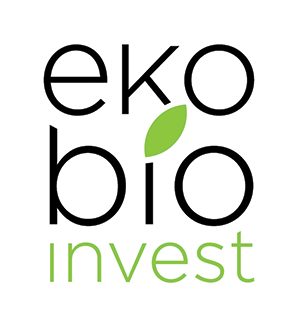Eko Bio Invest is a company that’s starting to conquer the world’s markets with products made from a material that represents an alternative to soft plastic packaging – organic fruit and vegetable waste. This material has no harmful effects on humans or the environment, as confirmed by certificates from the EU and the U.S.
This company’s operations represent a textbook example of the circular economy, as they utilise waste as raw material, creating new products that dissolve in water or decompose in the ground without added additives after use, and can then be used as a fertiliser.
Not much is known about your products that are innovative, and perhaps even revolutionary. Can you tell us more about them; present to us what Eko Bio Invest does?

With our partner company, SAG Invest from Paris, we deal with products that are just starting to conquer world markets and that are an alternative to “soft” plastic. This is a material created from organic waste, from fruits and vegetables. It dissolves almost instantly in the water at a temperature of 80°C, and decomposes in the ground within a period of 25 days to six months, without the use of additives.
It has no harmful effects whatsoever on humans or the environment, which is conformed by laboratory certificates we’ve received from both the EU and the U.S. This material is mainly used to make carrier bags and cling film wrap, while our offer also includes plates and glasses. Our products are classified in the category of biodegradable, but they differ from other products with this characteristic that are already present on our market because they don’t contain any trace of plastic and don’t require special treatment after use, in terms of separation, disposal in specially designed composting tanks or the use of additives.
How far have we progressed on the endeavour to produce packaging from organic waste that is completely degradable in water and under the ground?
The solution is already here, it is in our hands! Now we have ahead of us serious work to familiarise the general public with such products. It will soon become a matter of personal choice whether we opt for a product that isn’t harmful or whether we use one that we know directly damages our health and is harmful to the environment.
Awareness of the limited nature of resources and the need to preserve the planet is leading ever more companies to switch to a renewable economy
Instead of continuing, through the food we eat, to ingest three to five grams of plastic a week, which is equivalent to a plastic payment card, we can already use products that don’t have any kind of harmful effects. We also expect additional expansion of the range, thanks to our cooperation with the excellent team of the Institute of Molecular Genetics and Genetic Engineering. We have agreed on double cooperation with IMGGI, in terms of testing domestic raw materials – fruit and vegetable waste generated in the domestic food industry – and in the area of conquering new possibilities and thus new applications for our material.
The term “circular economy”, along with the “Take – Make – Reuse” business model, only recently started being mentioned in our country. What are they about?
The regular production method is linear and based on the principle “Take – Make – Discard”, but now there is an ever-increasing representation of the model “Take – Make – Reuse”, I.e. the “circular economy”. Awareness of the limited nature of resources and the need to preserve the planet is leading ever more companies to switch to a closed-loop economy or a renewable economy.
Productivity is thereby increased, everything is used longer, and there is almost no waste. Renewable resources are used, the shelf life of products or components is extended, waste becomes a raw material, new values are created along with reduced costs, operations depend on research, development and digital technologies, alongside design for the future.